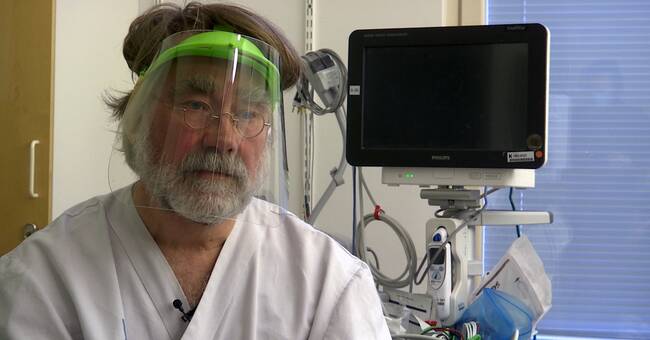At the reception in Solna, there are, among others, physiotherapists, psychologists, X-rays and doctors with different special skills, all gathered in the same corridors.
All in order to best cope with the influx of patients with the recent disease that is usually called long-term covid - ie patients with symptoms that persisted for more than twelve weeks after the onset of covid-19.
- This disease is complex and can have several different faces.
Then you need an overall picture of the patient, says Michael Runold, chief physician at Karolinska in Solna.
Solna's mission disappears
However, the number of patients with long-term symptoms is increasing and the reception is undersized.
- This autumn, we asked for more resources, so that we could expand.
There are premises here we could use, says Michael Runold.
But there were no extra resources.
Instead, the message will now be that patients from primary care will stop being referred to Solna.
In the future, Danderyd and Södersjukhuset will start receiving patients, and the task of a multidisciplinary clinic similar to the one in Solna will instead be built from the ground up in Huddinge.
- We did not think it was true.
I was extremely disappointed, especially for the sake of the patients.
It is not patient safe to do this now, in the middle of the third wave of the pandemic.
Everything is already in place here, says Michael Runold.
"Competence is in the people, not the premises"
The health and medical care administration refers to a political decision that Karolinska's two hospitals - Huddinge and Solna - should have a different focus.
- This is part of the restructuring in the healthcare system where the broad infection assignment is located in Huddinge, says Lena Hanberg, head of the department for specialized care at the health and medical care administration.
But is it not a waste of resources to build a new one in Huddinge when there is a functioning reception in Solna?
- Since they work at Solna and at Karolinska, it is not a waste of resources, the competence remains there.
It sits in the people, not in the premises.
Karolinska's management is very careful that you do not intend to move anything until you have made sure that you can do it in a safe way, and then we have confidence in it, says Lena Hanberg.

